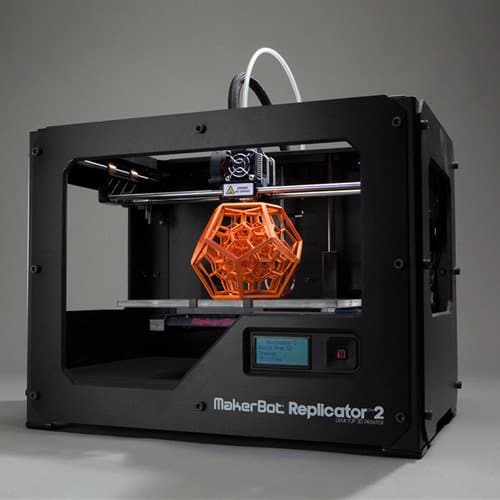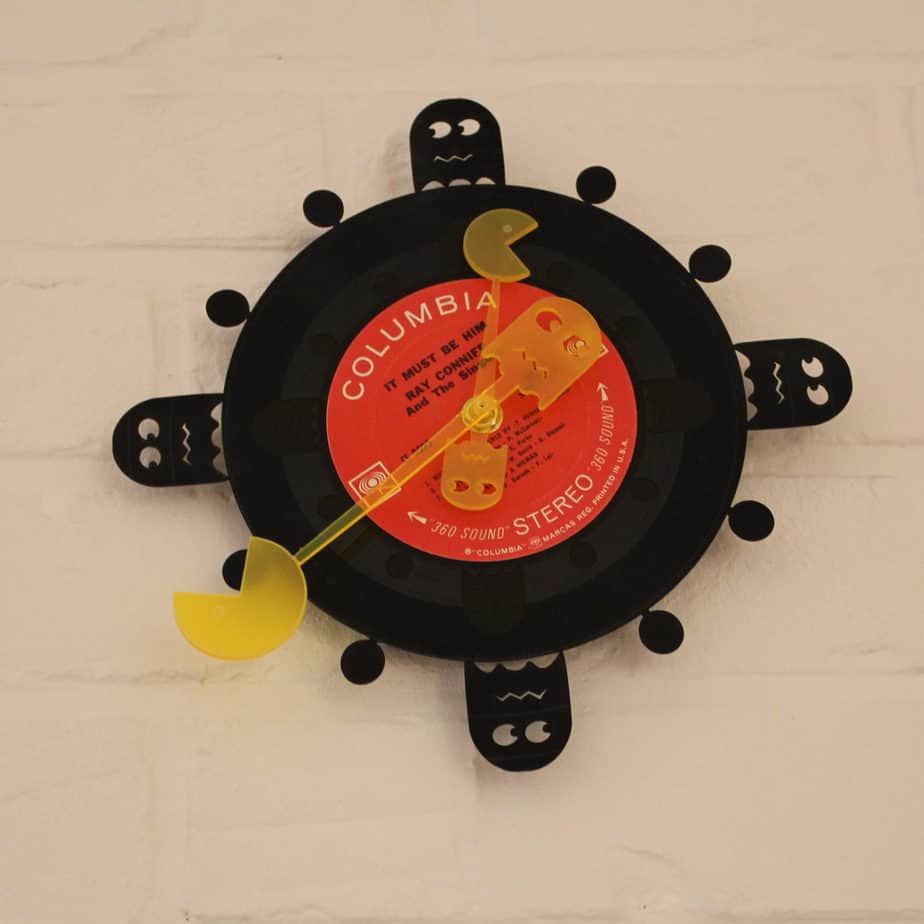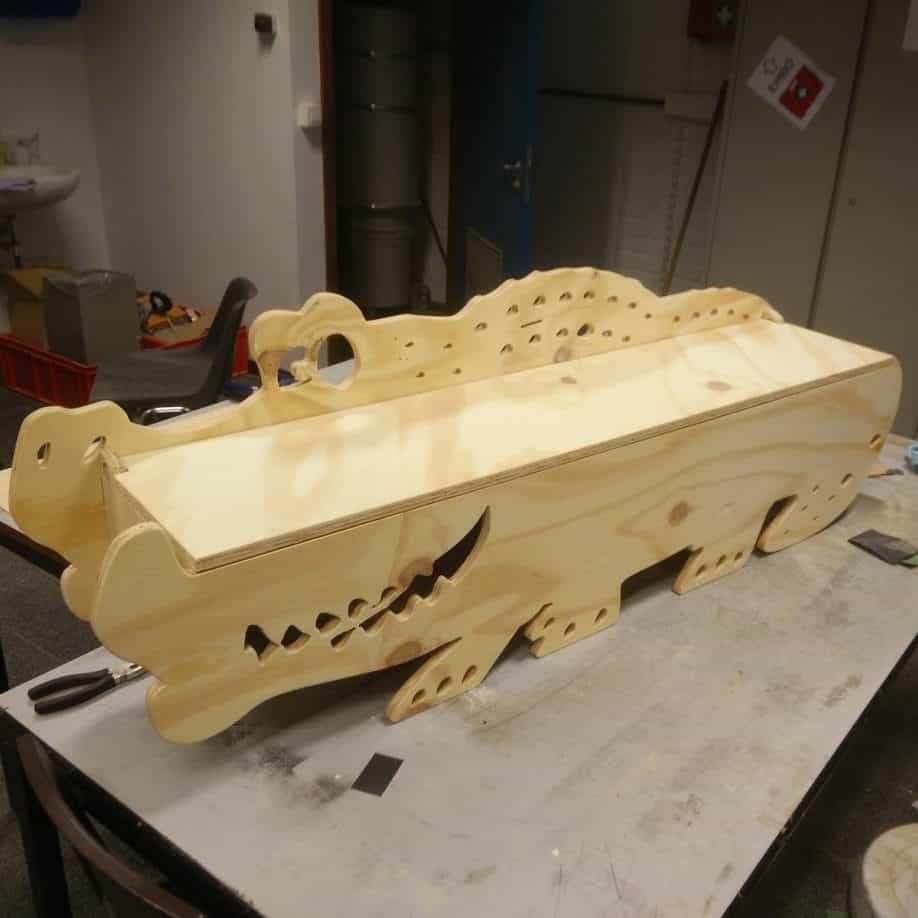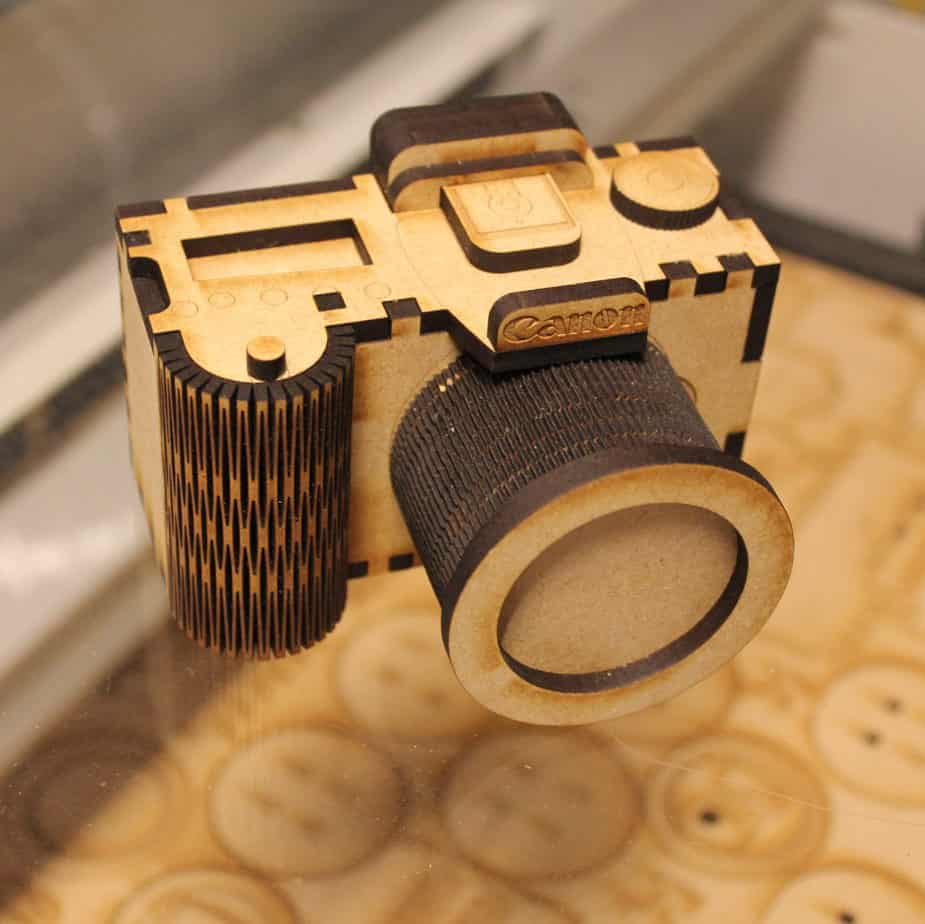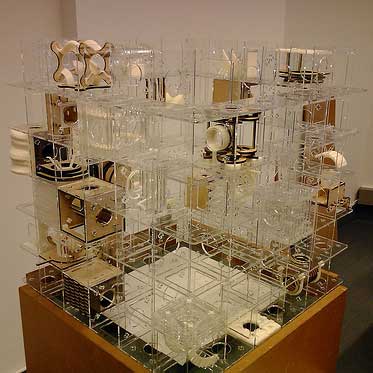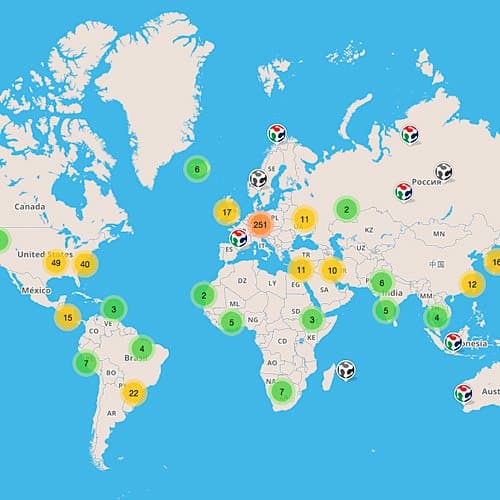Homepage
FabLab Leuven is "open source hardware" for students and staff of the KU Leuven Association and Imec, in other words: a library of user-friendly machines to make almost anything in wood and plastic.
For students and staff members of the KU Leuven Association and Imec.
attention: RESERVATION POSSIBILITY for personnel: make your reservation here.
Always bring your personal student or staff card from the KU Leuven Association and Imec with you and register with us before using the machines. We allow maximum 25 persons in our largest FabLab room.
Are you personnel, you can still make your reservation here.
Furthermore you show that you respect our FabLab and the other users by always cleaning up your material when you have finished.
You are only allowed to use one machine per project / person (i.e. if you are making invitiations or tokens for scouts, you can only use one laser cutter). This in respect for the people waiting to use the laser cutter as well.
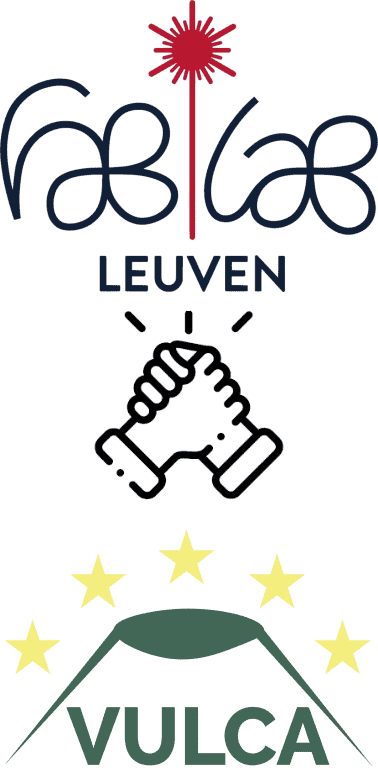
Personnel can still reserve through our tool.
Monday 8:45 - 17:45 Tuesday 8:45 - 17:45 Wednesday 9:00 - 17:45 Thursday 8:45 - 17:45 Friday 8:45 - 17:45 Saturday Closed Sunday Closed
We zijn open.
Next data we're closed or have different opening hours:
21 Jul Closed
29 May - 30 May Closed 9 Jun - 9 Jun Closed 3 Jul - 11 Jul Closed 15 Aug - 29 Aug Closed 8 Sept - 8 Sept Closed 11 Nov - 11 Nov Closed 25 Dec - 1 Jan Closed
Heb je een idee? Wil je het realiseren? Zoek je een plaats waar je een eerste prototype kan maken om eventuele klanten te overtuigen? FabLab-Leuven is die plaats...
News
When in 2014 two enterprising students, Dimi Moreels and Kristof van Thielen, had to initiate their graduation project, they soon found their way to the FabLab. The idea was to develop an ecological, trendy wallet, in line with their vision that nature and stylish fashion can go hand in hand. Getting rid of the perception that sustainable products are merely boring, but developing a concept that shows that eco-friendly products can also be trendy.
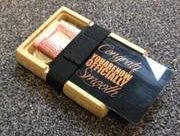 With the assistance of FabLab Leuven, the Pallet was created: a compact, trendy wallet made of bamboo, which can be personalized by engraving texts, logo’s, etc. Together with the Pallet the company SMTH Smooth (pronounced as Something Smooth) was born! Beginning 2014 founded as a Small Business Project, but after winning two awards (Hyundai Brilliant Young Entrepreneur award and Start-it @ KBC), the project made a start as a commercial business.
With the assistance of FabLab Leuven, the Pallet was created: a compact, trendy wallet made of bamboo, which can be personalized by engraving texts, logo’s, etc. Together with the Pallet the company SMTH Smooth (pronounced as Something Smooth) was born! Beginning 2014 founded as a Small Business Project, but after winning two awards (Hyundai Brilliant Young Entrepreneur award and Start-it @ KBC), the project made a start as a commercial business.
FabLab’s role in this project was much bigger than merely providing the machines and guiding young entrepreneurs on the technical side. Also, for the creative part the employees of FabLab were there for advice. And even while developing their business plan Dimi and Kristof were assisted by them. After the Pallet also the wooden smartphone cases, a clothing line of their own, wooden sunglasses and watches were added to the product line.
It’s clear that Dimi and Kristof owe FabLab a lot. More than that, their collaboration with Tomorrowland could be achieved partly thanks to the flexibility of FabLab Leuven: two of the lab’s laser cutters have been placed at the disposal of SMTH Smooth during the festival so they could engrave smartphone cases with a design developed by Tomorrowland. In terms of support to a start-up this may count.
Still now Dimi and Kristof make use of the services FabLab offers: at least once a week the laser cutters are being used at a fair hourly price. A big advantage for young entrepreneurs as purchasing the necessary machines by themselves would be a huge investment.
 Behind the scenes FabLab Leuven continues giving them advice on further development of their business: ‘It provides us ease of mind’, says Kristof, that FabLab keeps guiding us during this adventure.’
Behind the scenes FabLab Leuven continues giving them advice on further development of their business: ‘It provides us ease of mind’, says Kristof, that FabLab keeps guiding us during this adventure.’
SMTH Smooth was one of the first start-ups that was guided in such a way, and if it depends on FabLab, Smooth will not be the last one either. The intention is that more and more young entrepreneurs find their way with their ideas to FabLab, so that a nice partnership can be formed.
So, to all starting and aspiring student-entrepreneurs who read this, you know where to go 😉 .

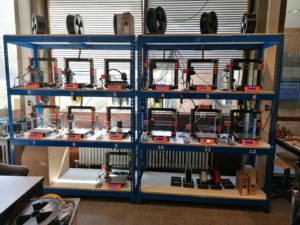 Since February 2021 a 3D printing farm has been installed in FabLab. A whát, you might think.
Since February 2021 a 3D printing farm has been installed in FabLab. A whát, you might think.
The concept ‘farm’ may not immediately remind you of a fine piece of technology. Yet, this is exactly what it is. In a 3D printing farm the focus is on the optimal implementation of the printers’ capacity, in other words: striving for a maximization of the output and this by using software that can manage the printers.
The manager of the FabLab, Marc Lambaerts, was inspired by the Czech company Prusa, one of the leading companies specialized in 3D printing. Currently, Prusa has more than 1000 printers operational according to the principle of the 3D printing farm. Marc contacted Flanders Make, that provided him with the tools to be able to develop such a farm. These tools came in the form of free software, being two apps, named RaiseCloud and Octoprint. This combination makes it possible to manage printers from a distance. Through the apps the employees of FabLab get access to the printing farm and can clearly see which printers are active, in stand-bye, show an error code, …
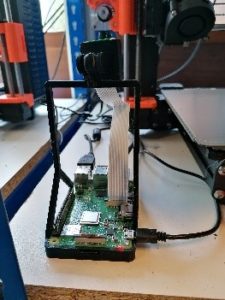 Through the apps you get a live overview of the different printers and the projects that are being printed at that very moment. A camera, which is installed on the Raspberry Pi of the printer, always makes sure that there can be a live connection with the printer in case visual control is needed. As a last feature Lowie Goossens wrote a plug-in for Octoprint which ensures a label is being printed once the print has finished – the label mentions the print’s name. This way all steps in the process are easy to follow.
Through the apps you get a live overview of the different printers and the projects that are being printed at that very moment. A camera, which is installed on the Raspberry Pi of the printer, always makes sure that there can be a live connection with the printer in case visual control is needed. As a last feature Lowie Goossens wrote a plug-in for Octoprint which ensures a label is being printed once the print has finished – the label mentions the print’s name. This way all steps in the process are easy to follow.
There are numerous advantages of a 3D printing farm. First, such a farm can be managed from a distance; the employees of FabLab Leuven do not need to be present in the lab itself. The printers can also run during nights and weekends, which is a huge advantage – certainly for bigger projects – and leads to extra output.
The extra capacity that can be realized is also an important advantage and is being improved by the fact that the print now only needs to be labeled and taken off the print plate. This takes approximately one minute whereas in the past it took around 15 minutes per print. Therefore, this results in an enormous time gain. Also the risk of mistakes is limited, as the labels are automatically printed once the project has finished.
Since last February FabLab Leuven has realized about 1300 prints through this set-up. In pre-farm era this number could only have been around 300!
The velocity with which the projects can be realized, is something that we shouldn’t forget: students can now assume that their project will be finished in about 24 hours, max 48 hours. If you compare this to the 7 days they had to take into account in the past, then it’s clear that the 3D printing farm offers nothing but advantages. Also, the start-up of a project has become more accessible: the student sends the file per mail and the file is being uploaded to the 3D farm. It’s no longer necessary to come to the FabLab with a SD card or flash drive; all you need to start a print is a simple mail.
With this 3D printing farm FabLab Leuven demonstrates that it keeps renewing and strives to be an environment where creativity is a high priority, without overlooking the production capacity.


